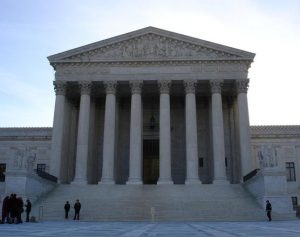 Many people I talk to think a DUI is something any lawyer can handle. As an experienced DUI specialist lawyer I can tell you that is not true. I have many hours of specialized training that most lawyers do not have. The following case is a good example of why a specialist is needed.
Many people I talk to think a DUI is something any lawyer can handle. As an experienced DUI specialist lawyer I can tell you that is not true. I have many hours of specialized training that most lawyers do not have. The following case is a good example of why a specialist is needed.
The case is State v. Soucy, 2012 ME 16. Mr. Soucy was speeding and was upset after a fight with his girlfriend. He was stopped by police and given field sobriety tests. He had balance troubles on the balance tests and the HGN test showed jerking of his eyes. He was arrested and blew a 0.00 on the Intoxilyzer. The cop asked him if he took medications and he told him he took oxycodone and hydrocodone. Mr. Soucy told police he wasn’t impaired by drugs, just tired and sick with the flu. They called in a Drug Recognition Technician to perform a DRE test.
A DRE test is a battery of tests and examinations. The technician examines the subjects eyes, blood pressure, muscle tone, balance, temperature and and other things. (There is a lot of doubt in the scientific world about the reliability of these tests, but that is for another blog.) The test showed pinprick pupils, HGN, rigid muscles and bad balance.
 Southern Maine Criminal Lawyer Blog
Southern Maine Criminal Lawyer Blog










 The 4th Amendment has been resuscitated!! Hopefully you recall back in September of 2010, I wrote about GPS tracking devices and a recent decision from the District of Columbia Circuit (“GPS Tracking Devices – A Warrant or Not A Warrant – That is Now the Question”). Well, on Monday we got our answer; kind of….
The 4th Amendment has been resuscitated!! Hopefully you recall back in September of 2010, I wrote about GPS tracking devices and a recent decision from the District of Columbia Circuit (“GPS Tracking Devices – A Warrant or Not A Warrant – That is Now the Question”). Well, on Monday we got our answer; kind of…. This week the Supreme Court, in United States v. Jones, ___ US ___ (2012), decided that placing a GPS on a person’s car and tracking to movements is a search that requires a warrant. This is an important decision for several reasons. First, changes in modern technology make it easier for government to intrude on our privacy. Second, it made it clear that there are two ways to analyze when a search warrant is needed. Third, it shows that the Court may change its views of the Fourth Amendment as technology becomes more invasive of our privacy.
This week the Supreme Court, in United States v. Jones, ___ US ___ (2012), decided that placing a GPS on a person’s car and tracking to movements is a search that requires a warrant. This is an important decision for several reasons. First, changes in modern technology make it easier for government to intrude on our privacy. Second, it made it clear that there are two ways to analyze when a search warrant is needed. Third, it shows that the Court may change its views of the Fourth Amendment as technology becomes more invasive of our privacy. If you get a DUI it is very important that you get a
If you get a DUI it is very important that you get a  In yesterday’s paper there was an article about a shooting in Mt. Rainier National Park. There was a tragedy in the park. A young man, believed to be Benjamin Colton Barnes, had severe mental problems – possibly PTSD from service in Iraq. He shot several people near Seattle on New year’s Eve. He may also have been involved in another shooting incident that night. On New Year’s Day Barnes he fled to Mt. Rainier National Park.
In yesterday’s paper there was an article about a shooting in Mt. Rainier National Park. There was a tragedy in the park. A young man, believed to be Benjamin Colton Barnes, had severe mental problems – possibly PTSD from service in Iraq. He shot several people near Seattle on New year’s Eve. He may also have been involved in another shooting incident that night. On New Year’s Day Barnes he fled to Mt. Rainier National Park.